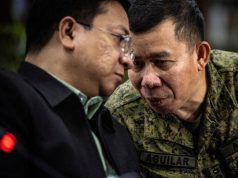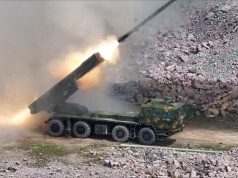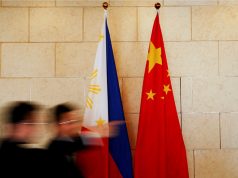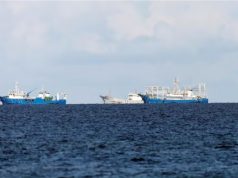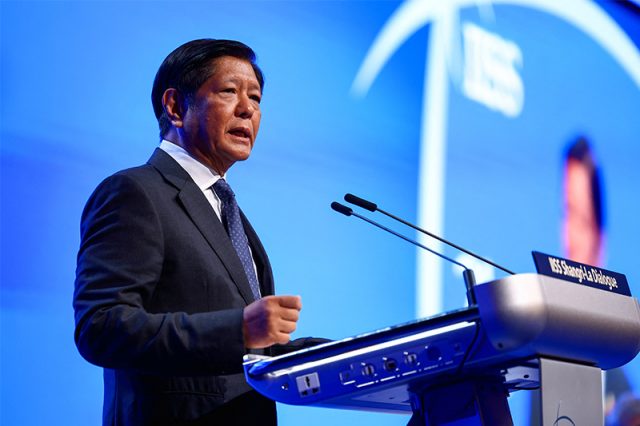
- Marcos calls out illegal, deceptive actions in South China Sea
- Chinese coast guard vessels increased patrols in recent months
- US, China tensions destabilizing Southeast Asia – Marcos says
SINGAPORE — Philippine President Ferdinand R. Marcos Jr on Friday denounced illegal, coercive and aggressive actions in the South China Sea, a disputed ocean territory that China has been flooding with coastguard ships in recent months.
Speaking at the opening of the Shangri-La Dialogue defense summit in Singapore, Marcos said that the Philippines and other Southeast Asian countries had a vision for “peace, stability, and prosperity” in the South China Sea, but that this was being undermined by other actors, without naming China.
“Unfortunately, this vision remains for now a distant reality. Illegal, coercive, aggressive, and deceptive actions continue to violate our sovereignty, sovereign rights, and jurisdiction,” Marcos said.
Encounters between the Philippines and China in Asia’s most contested waters have grown more tense and frequent during the past year as Beijing presses its claims to shoals in waters that Manila says are well within its exclusive economic zone.
China’s coast guard has stepped up so-called “grey-zone” activities such as use of water cannons, collisions and ramming tactics to try to stop Philippine resupply and patrol missions. It has also deployed fishing boats that the Philippines and its allies consider militia.
After his speech, Marcos called security in the South China Sea, through which a huge volume of trade passes, a global issue. Later, a reporter asked Marcos whether China would be crossing a “red line” if one of its coast guard ships killed a Filipino with water cannons.
“If a Filipino citizen was killed by a willful act, that is very close to what we define as an act of war,” Marcos replied. “We would have crossed the Rubicon. Is that a red line? Almost certainly.”
The Philippines, a sprawling archipelago with strong historical ties to the United States and close geographical proximity to China, is at the center of an intensifying power struggle between Washington and Beijing.
Earlier on Friday, U.S. Defense Secretary Lloyd Austin and China’s defense minister, Dong Jun, met in Singapore on the sidelines of Asia’s premier defense summit.
During the meeting with Dong, Austin underscored the importance of freedom of navigation under international law, especially in the South China Sea, according to a Pentagon statement released after the meeting.
Dong responded by telling Austin that the United States was stoking tensions through its military presence in the region, his spokesperson told reporters.
Marcos said tensions between the United States and China were destabilizing for Southeast Asia, calling on Washington and Beijing to work harder to resolve disputes.
“Their rivalry is constraining the strategic choices of regional states. Their contest is exacerbating flashpoints
and has created new security dilemmas,” Marcos said.
“The continued stability of this region requires China and the United States to manage their rivalry in a responsible manner,” he said.
—Reporting by Joe Brock, Xinghui Kok and Mikhail Flores; Editing by Gerry Doyle





